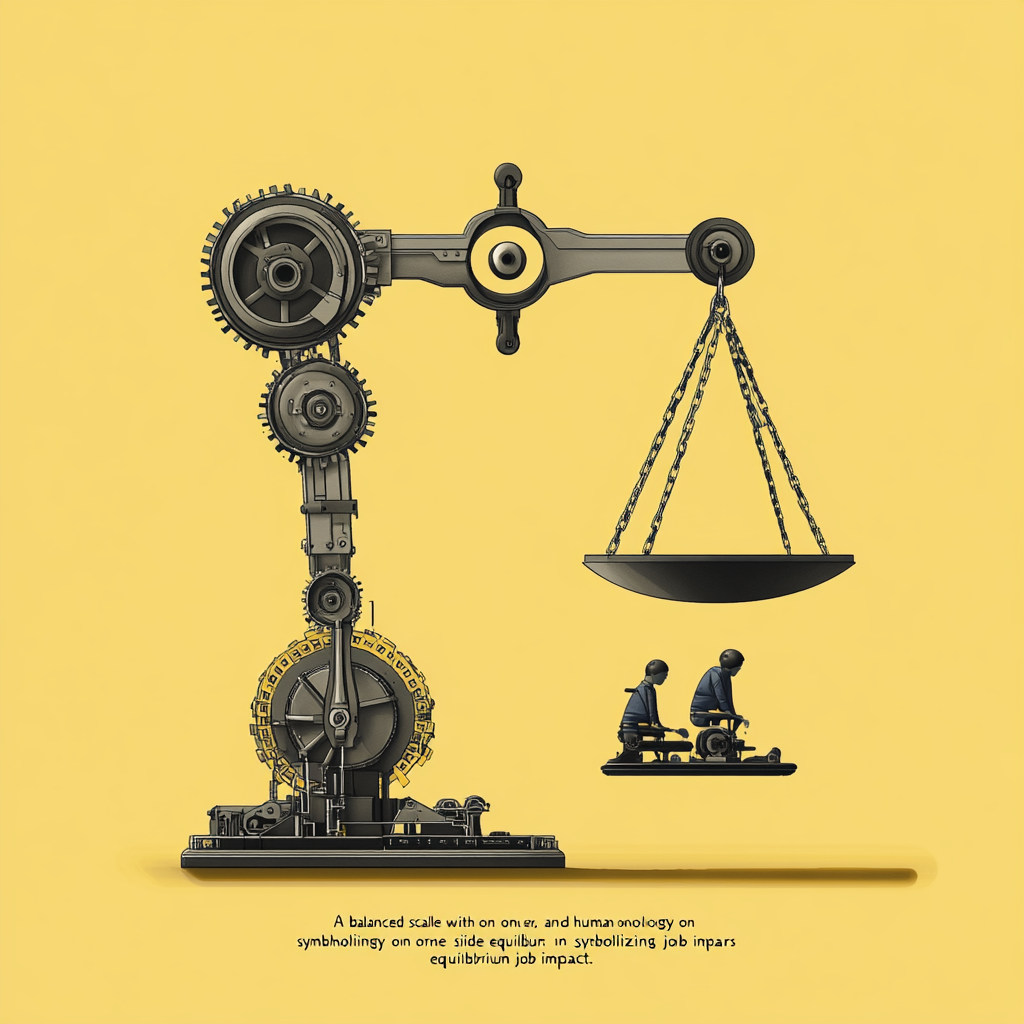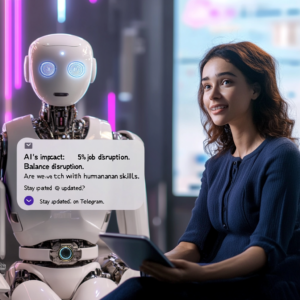
Economist Warns of Crash with AI’s Limited Job Impact
The AI Job Revolution: A Candid Chat with Daron Acemoglu
Picture this: You’re sitting in a café, sipping your artisanal brew, and tuning into a conversation that’s buzzing around the concept of artificial intelligence (AI) reshaping our workplaces. Daron Acemoglu, an MIT professor with a razor-sharp mind and an insightful lens on economics, recently cast a spotlight on this subject during an engaging interview with Bloomberg. Here’s a fresh take on what he had to say, tempered with a pinch of subjective seasoning.
The 5% Phenomenon
Let’s get right into the meat of it. Acemoglu asserts that, despite our fixation on AI's rapid-fire advancements, only a fraction—about 5%—of jobs could see a substantial transformation over the next decade. Now, hold that thought, because it’s not a finger-wagging "AI is just a fad" kind of statement. Instead, it’s more like a cautionary tale warning us against getting swept away in the hype. Sure, AI is impressive, but it’s not exactly a sorcerer waving a wand over the entire job market.
The Constraints of Our Current AI Arsenal
Quality Data, Anyone?
Why such a modest estimate, you ask? Acemoglu points his economic finger at the elephant in the room: data quality. Our current AI models, while sophisticated, are still needy little ones that thrive under the supervision of human hands. Take coding, for instance. Yes, there's some level of automation there, but many professions require that exquisite cocktail of reasoning, intuition, and adaptability—ingredients that the current AI chef simply can’t whip up.
Architectural Limitations: Cracks in the Code
And here’s another nugget: the architectural constraints of our leading AI systems. Acemoglu notes that merely cranking up the data and computational power is not a magic formula for boosted capabilities. Wanna build a computer that swings a hammer like a carpenter? You’ll need an entirely different data structure and, potentially, a fresh architecture. And, spoiler alert: we aren’t there yet.
Job Categories in the Crosshairs
The Silver Lining: AI-Related Jobs on the Rise
However, not everything is dim and somber. AI is generating a new breed of jobs—think AI programmers, integrators, and data wranglers. Those are shiny new roles popping up as the tech landscape evolves. Yet, let’s keep one foot on the brake: the truth is, these positions occupy only a slim slice of the overall job pie.
Routine Jobs: The Cautionary Tale
Unfortunately, the story isn’t all sunshine and rainbows. Acemoglu points out that jobs given to mundane, repetitive tasks—like IT security roles—could dwindle in numbers. AI tools are turning those tasks into well-oiled machines, minimizing the need for human intervention. Feel that? It’s the quiet tick-tock of change creeping in.
Economic Ripples: The Big Picture
Investment Shenanigans?
Now, let’s talk cash—big bucks, in particular. Picture this: tech titans like Meta, Microsoft, Amazon, and Google are plowing vast fortunes into AI development. Acemoglu isn’t just waving a red flag; he’s waving a cautionary banner. Does shelling out $50 billion in a single quarter for AI development make sense? Aside from inflating the bubble, he suggests these resources might be better served on urgent matters: education, sanitation, healthcare—the list goes on.
Does the AI Bubble Matter?
With all this giddy spending, the economist raises a daunting question: what happens if the expected returns don’t materialize? The fear is that an inflated bubble could lead us to an economic crash. It’s like that precarious house of cards ready to topple. We see this AI buzz resulting in stock surges and booming investments, but if the returns can’t justify the hype, we may face a financial nightmare down the line.
Public Outcry and Banter
The waves of Acemoglu’s views have stirred up quite the tempest in a teapot. Some folks brush his estimates off as too conservative, claiming that AI might augment more jobs than he predicts. Meanwhile, others grumble about the treasure trove devoted to AI when pressing global dilemmas hover like dark clouds over us.
Concluding Thoughts on the AI Landscape
In the end, Daron Acemoglu’s insights offer a striking reality check on the hype surrounding AI and its potential alter ego, the job market. Make no mistake, AI is a formidable technology, but we need to acknowledge its current limitations and the complexity of human roles. An immediate economic revolution led by AI is more fairy tale than fact.
And here’s where you, dear reader, come into play. Want to keep your finger on the pulse of the ever-evolving AI and automation landscape? Subscribe to our Telegram channel: @channel_neirotoken for updates dripping with insight and news that matter!

